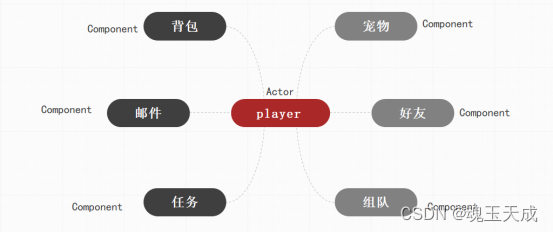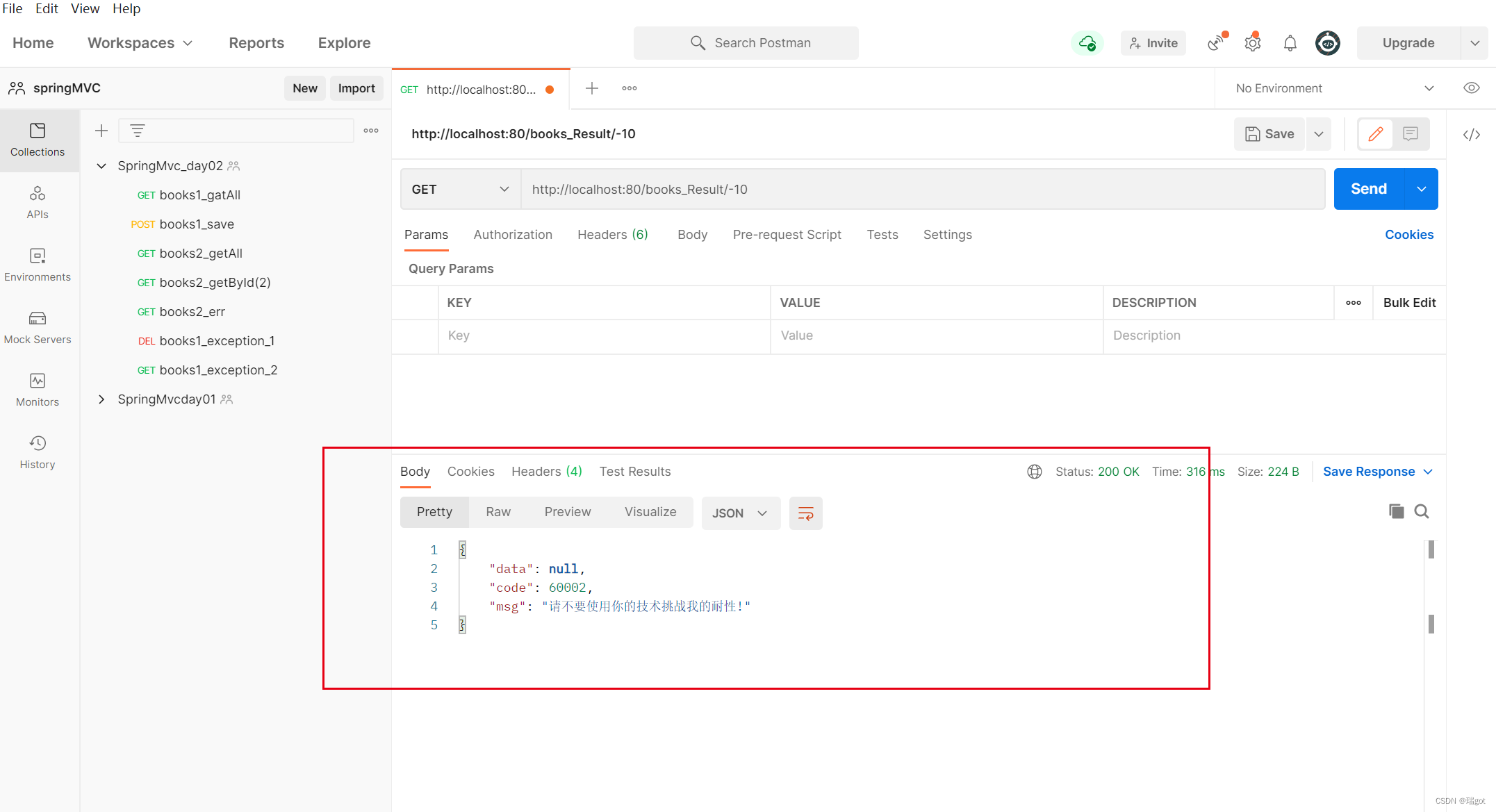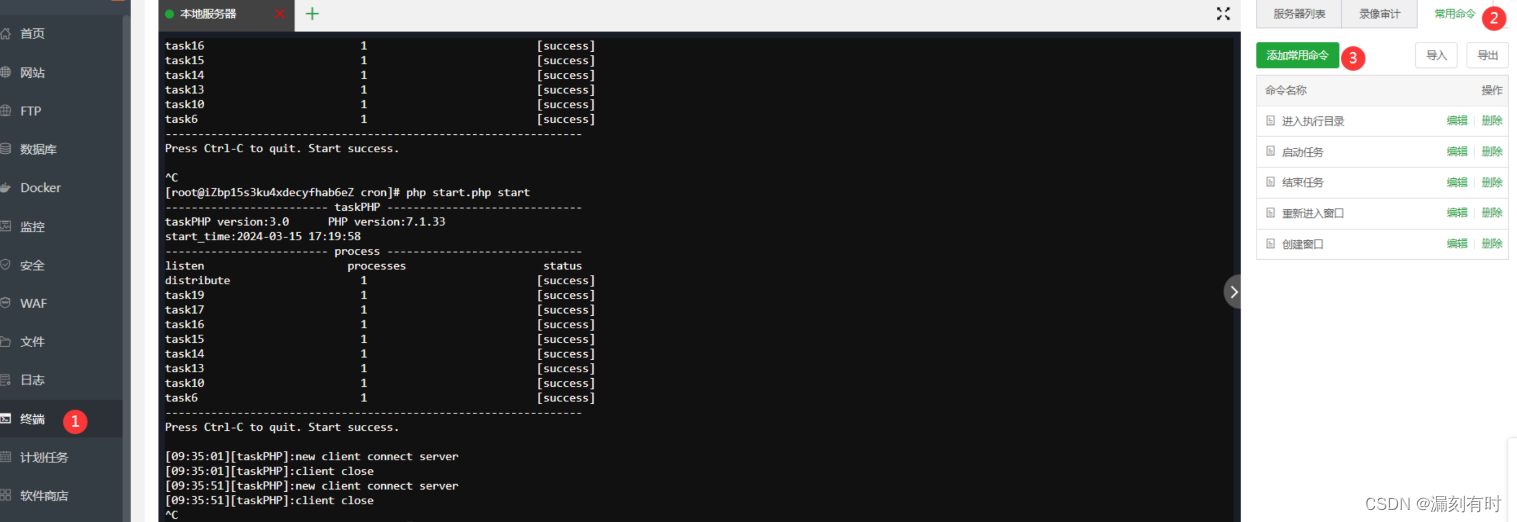目录
实验要求:
实验拓扑图:
实验思路:
实验步骤:
一、配IP地址
(1)配置所有设备接口的IP地址:
(2)配置私网与公网接口的缺省路由使得公网可通:
二、PPP验证的PAP和CHAP认证 与 DHLC 认证
(1)R1和R5间使用PPP的PAP认证,R5为主认证方。
(2)R2与R5之间使用ppp的CHAP认证,R5为主认证方。
(3)R3与R5之间使用HDLC封装。
三、再创建GRE VPN和MGRE VPN
(1)R1、R2、R3构建一个MGRE环境,R1为中心站点。
(2)R1、R4间为点到点的GRE。
(3)在R1到R5上配置路由协议(RIP)传递两端私网路由
四、配置NAT协议(easy IP)使得所有的PC可以访问R5环回
实验要求:
1、R5为ISP,只能进行IP地址配置,其所有地址均配为公有IP地址。
2、(1)R1和R5间使用PPP的PAP认证,R5为主认证方。
(2)R2与R5之间使用ppp的CHAP认证,R5为主认证方。
(3)R3与R5之间使用HDLC封装。
3、R1、R2、R3构建一个MGRE环境,R1为中心站点,R1、R4间为点到点的GRE。
4、整个私有网络基于RIP全网可达。
5、所有PC设置私有IP为源IP,可以访问R5环回,实现全网通。
实验拓扑图:

实验思路:
- 根据拓扑图配置所有设备的IP地址
- 将私网与公网分别搞通
- 在公网搞通的基础上进行PPP的pap和chap认证,以及DHLC验证
- 再创建GRE VPN和MGRE VPN
- 配置NAT协议使得所有的PC可以访问R5环回,实现全网通
实验步骤:
一、配IP地址
(1)配置所有设备接口的IP地址:
PC1:

PC3:
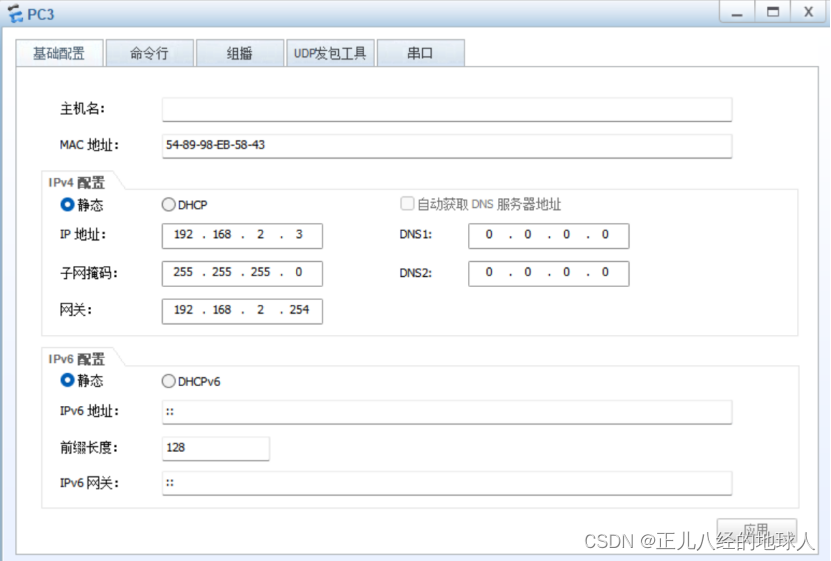
PC6:
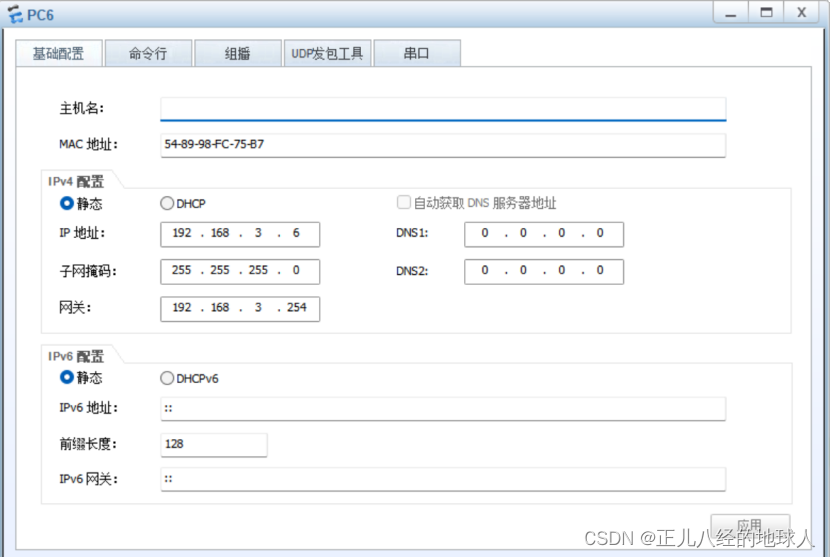
PC7:

R1:
<Huawei>sys
[Huawei]sysn R1
[R1]int g 0/0/0
[R1-GigabitEthernet0/0/0]ip add 192.168.1.254 24
[R1-GigabitEthernet0/0/0]q
[R1]int Serial 4/0/0
[R1-Serial4/0/0]ip add 15.1.1.1 24
[R1-Serial4/0/0]q
[R1]dis ip int bri
R2:
<Huawei>sys
[Huawei]sysn R2
[R2]int g0/0/0
[R2-GigabitEthernet0/0/0]ip add 192.168.2.254 24
[R2-GigabitEthernet0/0/0]q
[R2]int Serial 4/0/0
[R2-Serial4/0/0]ip add 25.1.1.2 24
[R2-Serial4/0/0]q
[R2]dis ip int bri
R3:
<Huawei>sys
[Huawei]sysn R3
[R3]int g0/0/0
[R3-GigabitEthernet0/0/0]ip add 192.168.3.254 24
[R3-GigabitEthernet0/0/0]q
[R3]int Serial 4/0/0
[R3-Serial4/0/0]ip add 35.1.1.3 24
[R3-Serial4/0/0]q
[R3]dis ip int bri
R4:
<Huawei>sys
[Huawei]sysn R4
[R4]int g 0/0/0
[R4-GigabitEthernet0/0/0]ip add 45.1.1.4 24
[R4-GigabitEthernet0/0/0]int g 0/0/1
[R4-GigabitEthernet0/0/1]ip add 192.168.4.254 24
[R4-GigabitEthernet0/0/1]q
[R4]dis ip int bri
R5:
<Huawei>sys
[Huawei]sysn R5
[R5]int g0/0/0
[R5-GigabitEthernet0/0/0]ip add 45.1.1.5 24
[R5-GigabitEthernet0/0/0]q
[R5]int Serial 4/0/1
[R5-Serial4/0/1]ip add 15.1.1.5 24
[R5-Serial4/0/1]q
[R5]int Serial 3/0/1
[R5-Serial3/0/1]ip add 25.1.1.5 24
[R5-Serial3/0/1]q
[R5]int Serial 4/0/0
[R5-Serial4/0/0]ip add 35.1.1.5 24
[R5-Serial4/0/0]q
[R5]int l0
[R5-LoopBack0]ip add 5.5.5.5 24
[R5]dis ip int bri(2)配置私网与公网接口的缺省路由使得公网可通:
R1:
[R1]ip route-static 0.0.0.0 0 15.1.1.5
R2:
[R2]ip route-static 0.0.0.0 0 25.1.1.5
R3:
[R3]ip route-static 0.0.0.0 0 35.1.1.5
R4:
[R4]ip route-static 0.0.0.0 0 45.1.1.5测试一下:
示例:
R1的serial 4/0/0接口 ping R2 的serial 4/0/0接口
<R1>ping -a 15.1.1.1 25.1.1.2
PING 25.1.1.2: 56 data bytes, press CTRL_C to break
0.00% packet loss
R3的serial 4/0/0接口 ping R4 的g 0/0/0接口
<R3>ping -a 35.1.1.3 45.1.1.4
PING 45.1.1.4: 56 data bytes, press CTRL_C to break
0.00% packet loss测试通过!!!
二、PPP验证的PAP和CHAP认证 与 DHLC 认证
(1)R1和R5间使用PPP的PAP认证,R5为主认证方。
R5(主验证方):
[R5]aaa
[R5-aaa]local-user gxc password cipher gxc12345
[R5-aaa]local-user gxc service-type ppp
[R5-aaa]q
[R5]int Serial 4/0/1
[R5-Serial4/0/1]ppp authentication-mode pap
[R5-Serial4/0/1]q
[R5]
R1(被验证方):
[R1-Serial4/0/0]ppp pap local-user gxc password cipher gxc12345
[R1-Serial4/0/0]shutdown
[R1-Serial4/0/0]undo shutdown
(2)R2与R5之间使用ppp的CHAP认证,R5为主认证方。
R5(主验证方):
[R5-aaa]aaa
[R5-aaa]local-user gxc password cipher gxc12345
[R5-aaa]local-user gxc service-type ppp
[R5-aaa]q
[R5]int Serial 3/0/1
[R5-Serial3/0/1]ppp authentication-mode chap
[R5-Serial3/0/1]q
[R5]
R2(被验证方):
[R2-Serial4/0/0]ppp chap user gxc
[R2-Serial4/0/0]ppp chap password cipher gxc12345
[R2-Serial4/0/0]undo shutdown
[R2-Serial4/0/0]shutdown(3)R3与R5之间使用HDLC封装。
R5:
[R5-Serial4/0/0]link-protocol hdlc
R3:
[R3-Serial4/0/0]link-protocol hdlc三、再创建GRE VPN和MGRE VPN
MGRE VPN:10.1.2.0/24
GRE VPN:10.1.1.0/24
(1)R1、R2、R3构建一个MGRE环境,R1为中心站点。
隧道接口配置:
R1:
[R1]int Tunnel 0/0/0
[R1-Tunnel0/0/0]ip add 10.1.2.1 24
[R1-Tunnel0/0/0]tunnel-protocol gre p2mp
[R1-Tunnel0/0/0]source 15.1.1.1
# 配置NHRP(下一跳解析协议)
[R1-Tunnel0/0/0]nhrp network-id 100
[R1-Tunnel0/0/0]q
[R1]dis nhrp peer all
R2:
[R2]int Tunnel 0/0/0
[R2-Tunnel0/0/0]ip add 10.1.2.2 24
[R2-Tunnel0/0/0]tunnel-protocol gre p2mp
[R2-Tunnel0/0/0]source Serial 4/0/0
# 设置与NHRP服务器(Next Hop Resolution Protocol)的条目
[R2-Tunnel0/0/0]nhrp network-id 100
[R2-Tunnel0/0/0]nhrp entry 10.1.2.1 15.1.1.1 register
[R2-Tunnel0/0/0]q
[R2]dis nhrp peer all
R3:
[R3]int Tunnel 0/0/0
[R3-Tunnel0/0/0]ip add 10.1.2.3 24
[R3-Tunnel0/0/0]tunnel-protocol gre p2mp
[R3-Tunnel0/0/0]source Serial 4/0/0.
[R3-Tunnel0/0/0]nhrp network-id 100
[R3-Tunnel0/0/0]nhrp entry 10.1.2.1 15.1.1.1 register
[R3-Tunnel0/0/0]q
[R3]dis nhrp peer all(2)R1、R4间为点到点的GRE。
R1:
[R1]int Tunnel 0/0/1
[R1-Tunnel0/0/1]ip add 10.1.1.1 24
[R1-Tunnel0/0/1]tunnel-protocol gre
[R1-Tunnel0/0/1]source 15.1.1.1
[R1-Tunnel0/0/1]destination 45.1.1.4
R4:
[R4]int Tunnel 0/0/1
[R4-Tunnel0/0/1]ip add 10.1.1.4 24
[R4-Tunnel0/0/1]tunnel-protocol gre
[R4-Tunnel0/0/1]source 45.1.1.4
[R4-Tunnel0/0/1]destination 15.1.1.1(3)在R1到R5上配置路由协议(RIP)传递两端私网路由
R1:
[R1]rip 1
[R1-rip-1]version 2
[R1-rip-1]network 192.168.1.0
[R1-rip-1]network 10.0.0.0
[R1-rip-1]undo summary
[R1-rip-1]q
查看路由表中的rip信息
[R1]dis ip routing-table protocol rip
[R1]int Serial 4/0/0
关闭RIP水平分割:
[R1-Serial4/0/0]undo rip split-horizon
[R1]int tunnel 0/0/0
开启伪广播 :
[R1-Tunnel0/0/0]nhrp entry multicast dynamic
R2:
[R2]rip 1
[R2-rip-1]v 2
[R2-rip-1]undo summary
[R2-rip-1]network 192.168.2.0
[R2-rip-1]network 10.0.0.0
[R2-rip-1]q
[R2]dis ip routing-table protocol rip
[R2]int t0/0/0
[R2-Tunnel0/0/0]undo rip split-horizon
[R2-Tunnel0/0/0]q
[R2]
R3:
[R3]rip 1
[R3-rip-1]v 2
[R3-rip-1]undo summary
[R3-rip-1]network 192.168.3.0
[R3-rip-1]network 10.0.0.0
[R3-rip-1]q
[R3]dis ip routing-table protocol rip
[R3]int t0/0/0
[R3-Tunnel0/0/0]undo rip sp
[R3-Tunnel0/0/0]undo rip split-horizon
[R3-Tunnel0/0/0]q
[R3]
R4:
[R4]rip 1
[R4-rip-1]v 2
[R4-rip-1]undo summary
[R4-rip-1]network 192.168.4.0
[R4-rip-1]network 10.0.0.0
[R4-rip-1]q
[R4]测试一下私网与公网是否已经是可通:
示例:
PC1 ping PC3:
PC>ping 192.168.2.3
Ping 192.168.2.3: 32 data bytes, Press Ctrl_C to break
20.00% packet loss
PC1 ping PC6:
PC>ping 192.168.3.6
Ping 192.168.3.6: 32 data bytes, Press Ctrl_C to break
0.00% packet loss测试通过!!!
四、配置NAT协议(easy IP)使得所有的PC可以访问R5环回
R1:
<R1>sys
[R1]acl 2000
[R1-acl-basic-2000]rule permit source 192.168.1.0 0.0.0.255
[R1-acl-basic-2000]q
[R1]int Serial 4/0/0
[R1-Serial4/0/0]nat outbound 2000
[R1-Serial4/0/0]q
[R1]
R2:
[R2]acl 2000
[R2-acl-basic-2000]rule permit source 192.168.2.0 0.0.0.255
[R2-acl-basic-2000]q
[R2]int Serial 4/0/0
[R2-Serial4/0/0]nat outbound 2000
[R2-Serial4/0/0]q
[R2]
R3:
<R3>sys
[R3]acl 2000
[R3-acl-basic-2000]rule permit source 192.168.3.0 0.0.0.255
[R3-acl-basic-2000]q
[R3]int Serial 4/0/0
[R3-Serial4/0/0]nat outbound 2000
[R3-Serial4/0/0]q
[R3]
R4:
<R4>sys
[R4]acl 2000
[R4-acl-basic-2000]rule permit source 192.168.4.0 0.0.0.255
[R4-acl-basic-2000]q
[R4]int g0/0/0
[R4-GigabitEthernet0/0/0]nat outbound 2000
[R4-GigabitEthernet0/0/0]q
[R4]测试一下:
示例:
PC1 ping R5的环回路由:
PC>ping 5.5.5.5
0.00% packet loss
PC7 ping R5 的环回路由:
PC>ping 5.5.5.5
Ping 5.5.5.5: 32 data bytes, Press Ctrl_C to break
20.00% packet loss测试通过!!!



